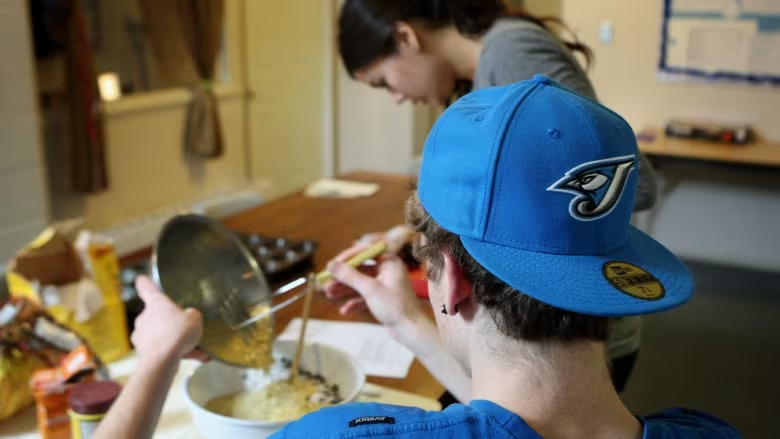
As groceries becoming increasingly expensive, having a few cooking skills can help people stretch their food budgets. (Dave Chidley/The Canadian Press)
Rising food prices are placing strain on Canadian households, and experts argue that the decline in cooking skills exacerbates the challenges of adapting to higher costs. Mike von Massow, an associate professor at the University of Guelph, notes that our ability to cook has diminished over the past few decades, making it more challenging to adjust diets amid soaring prices.
While affordability remains a significant concern, even those who can afford groceries struggle due to a lack of cooking skills, hindering their ability to find cheaper alternatives and improvise in the kitchen.
During the pandemic, home cooking increased, but the key question is whether people diversified their meals and adapted to changing ingredient costs. A report from Dalhousie University's Faculty of Agriculture in 2021 revealed that only 35% of Canadians surveyed learned a new recipe between the start of the pandemic and January 2021. This highlights the limited expansion of cooking skills during a time when it is essential.
Factors contributing to the decline in cooking skills include changes in school curriculum requirements. While some schools offer optional culinary programs, the lack of mandatory cooking courses affects overall skills development. The normalization of processed and pre-prepared foods has also played a role, with a federal government report in 2010 noting the potential loss of traditional cooking skills passed down from parents to children.
Raj Thandhi from Surrey, B.C., shares her experience of learning to cook due to financial constraints. The decline in cooking literacy, especially after discontinuing mandatory home economics courses, is a common sentiment among experts. The shift towards households where both parents work or single-parent households with working parents has made basic cooking skills crucial. The decline in these skills coincided with increased workforce participation.
While cooking skills are valuable for adapting to higher prices, Elaine Power, a professor at Queen's University, emphasizes that increased income is the most effective solution to food insecurity. She advocates for universal basic income, highlighting its positive impact on food security, dignity, and social inclusion. While cooking skills can help individuals make the most of constrained circumstances, they cannot compensate for inadequate income.
As Canadians grapple with food affordability concerns, the broader conversation includes the need for income support measures alongside efforts to enhance cooking skills. The combination of both aspects is essential for building resilience in the face of economic challenges.















